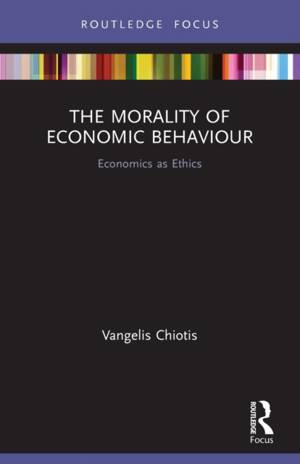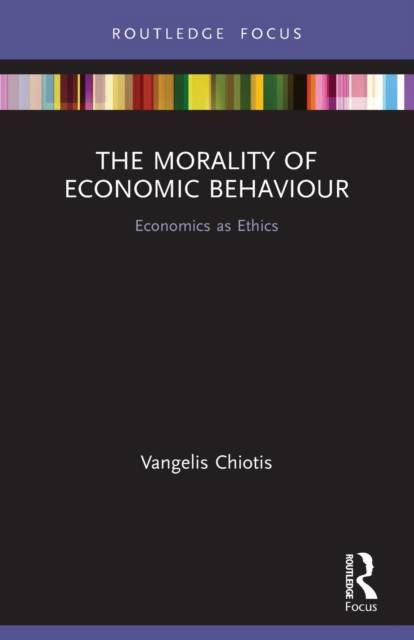
- Afhalen na 1 uur in een winkel met voorraad
- Gratis thuislevering in België vanaf € 30
- Ruim aanbod met 7 miljoen producten
- Afhalen na 1 uur in een winkel met voorraad
- Gratis thuislevering in België vanaf € 30
- Ruim aanbod met 7 miljoen producten
Omschrijving
The links between self-interest and morality have been examined in moral philosophy since Plato. Economics is a mostly value-free discipline, having lost its original ethical dimension as described by Adam Smith. Examining moral philosophy through the framework provided by economics offers new insights into both disciplines and the discussion on the origins and nature of morality.
The Morality of Economic Behaviour: Economics as Ethics argues that moral behaviour does not need to be exogenously encouraged or enforced because morality is a side effect of interactions between self-interested agents. The argument relies on two important parameters: behaviour in a social environment and the effects of intertemporal choice on rational behaviour. Considering social structures and repeated interactions on rational maximisation allows an argument for the morality of economic behaviour. Amoral agents interacting within society can reach moral outcomes. Thus, economics becomes a synthesis of moral and rational choice theory bypassing the problems of ethics in economic behaviour whilst promoting moral behaviour and ethical outcomes. This approach sheds new light on practical issues such as economic policy, business ethics and social responsibility.
This book is of interest primarily to students of politics, economics and philosophy but will also appeal to anyone who is interested in morality and ethics, and their relationship with self-interest.
Specificaties
Betrokkenen
- Auteur(s):
- Uitgeverij:
Inhoud
- Aantal bladzijden:
- 112
- Taal:
- Engels
- Reeks:
Eigenschappen
- Productcode (EAN):
- 9780367507626
- Verschijningsdatum:
- 29/04/2022
- Uitvoering:
- Paperback
- Formaat:
- Trade paperback (VS)
- Afmetingen:
- 140 mm x 216 mm
- Gewicht:
- 140 g

Alleen bij Standaard Boekhandel
Beoordelingen
We publiceren alleen reviews die voldoen aan de voorwaarden voor reviews. Bekijk onze voorwaarden voor reviews.











